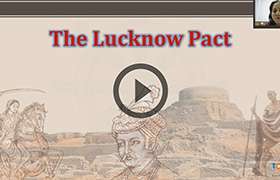ICSE Class 10 Answered
Explain any three provisions of the
Montague-Chelmsford reforms that dealt with the central government in India?
Asked by Topperlearning User | 05 Mar, 2015, 02:02: PM
Following are the three important provisions of the Montague-Chelmsford reforms that dealt with the central government in India:
- The Secretary of State for India would control the affairs pertaining to the Government of India.
- The Central Legislature was to consist of two chambers - the Council of State and the Indian Legislative Assembly. The Council was to have 60 members, of whom 34 were supposed to be elected. The Assembly would have 144 members, out of which 104 would be nominated. The powers of both the Chambers were identical except that the power to vote grants was to reside only with the Legislative Assembly.
- The Central legislature could legislate on any matter concerning the whole of India. However, there would be certain restriction in this case. The Central Legislature would have control over finance, except in certain items of expenditure. The Viceroy was bestowed with unlimited overriding powers in all these matters.
Answered by | 05 Mar, 2015, 04:02: PM


